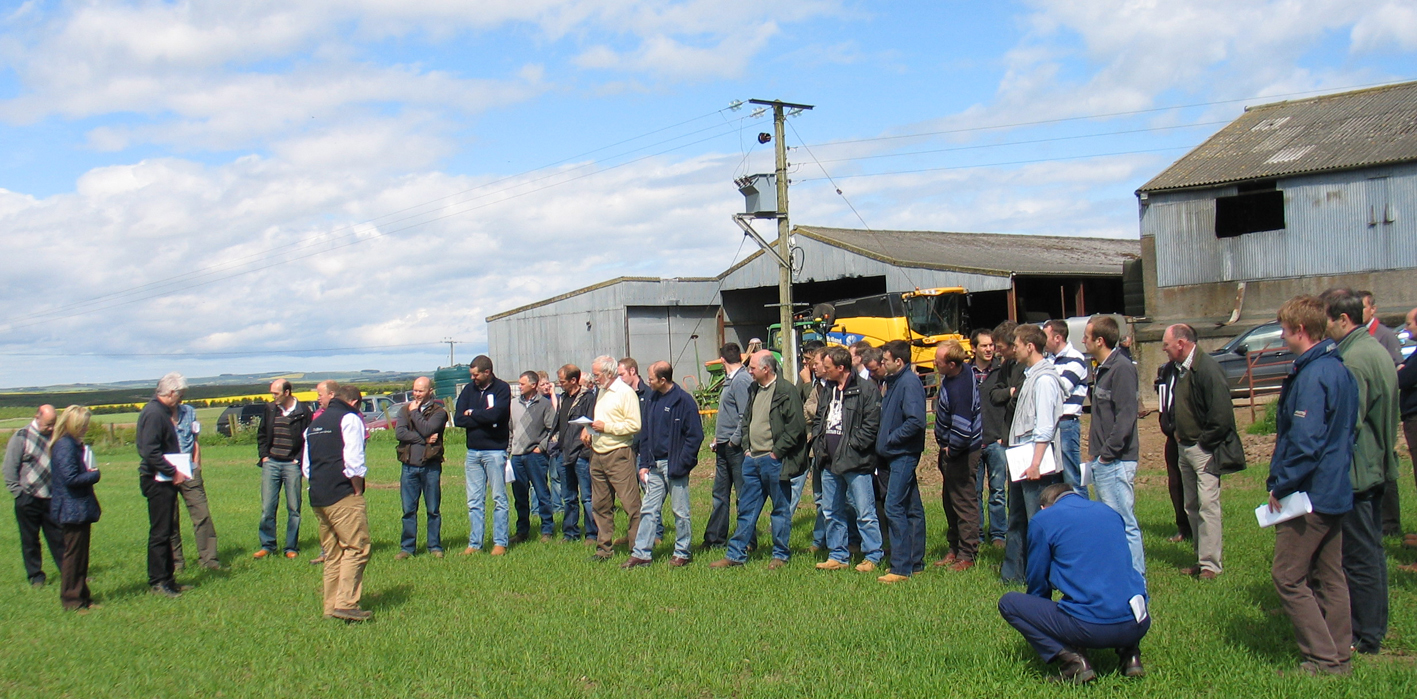
AHDB Cereals & Oilseeds’ Winchester Monitor Farm group have been looking into possible diversification activities.
The Monitor Farm group took inspiration from farmer Robert Raimes, who is a member of the Monitor Farm’s steering group.
Robert runs Grange Farm Partnership, a mixed arable and livestock farm which, six years ago, planted its first vineyards.
Robert said: “We were looking for an appropriate diversification opportunity as a family, something that would provide an interest for the wider family and children in the long term. We had identified two outlying fields that were difficult to incorporate into the arable rotation because of size and location.
“Fairly simultaneously we were approached on two separate occasions by companies looking to buy land for vineyard clients as our soil and aspect had been identified as appropriate. These fields fell within the block identified.
“Augusta, my wife and business partner, was particularly inspired by this and started a wine growing course at Plumpton to pursue the idea further. We hope that it will create several other layers of interest and opportunity for future generations in our family farming business.”
Paul Hill, AHDB Cereals & Oilseeds Knowledge Exchange Manager for the South East, said: “We chose this topic because there are many arable farmers who now can’t rely on just their cereal crops to give them a reliable income. Farmers have to be entrepreneurs, and so we discussed this subject to give the group ideas.”
'Good Deal of time and bravery'
On the process of diversifying, Robert admitted that it requires a good deal of time and bravery.
Robert said: “On the whole it fits around the arable enterprise as grape harvest is at the end of October and winter pruning is one of the longest most important tasks. In large part the hand work is carried out by Augusta and her sister Georgia – bud rubbing, wire raising, tucking in and so-on, with vine-working teams brought in to help at peak times such as harvest.
“However disease control is vital and periodically I will need to spray the vineyards before a day’s combining which makes for a very early start and long day. However, as arable growers with good agronomy experience, understanding the crop and disease control has come naturally.”
Paul Hill added: “Diversification doesn’t necessarily have to be a huge change. It could be something as simple as companion cropping or integrating a new crop into the rotation.
“But integration is the important thing. Everything has to fit together, with other revenue avenues linked in to help benefit the future sustainability of the main arable enterprise.”
Learning new skills
Robert and the Raimes team find that their new enterprise sits well with their existing farm business, although they have all had to learn new skills to make it a success.
Robert said: “It is our first experience of having a product to sell rather than a commodity. That side of it is challenging and very much part of the appeal with branding, sales relationships, tastings, meeting the customer and building a presence on social media.
Augusta studied the principles of wine growing at Plumpton College, and also received advice from a planting consultant on everything from pruning techniques to disease control. Expertise for the new venture also came from a local winery.
“We are proud to become a part of an exciting industry – English sparkling wine – that is establishing an international reputation.”
